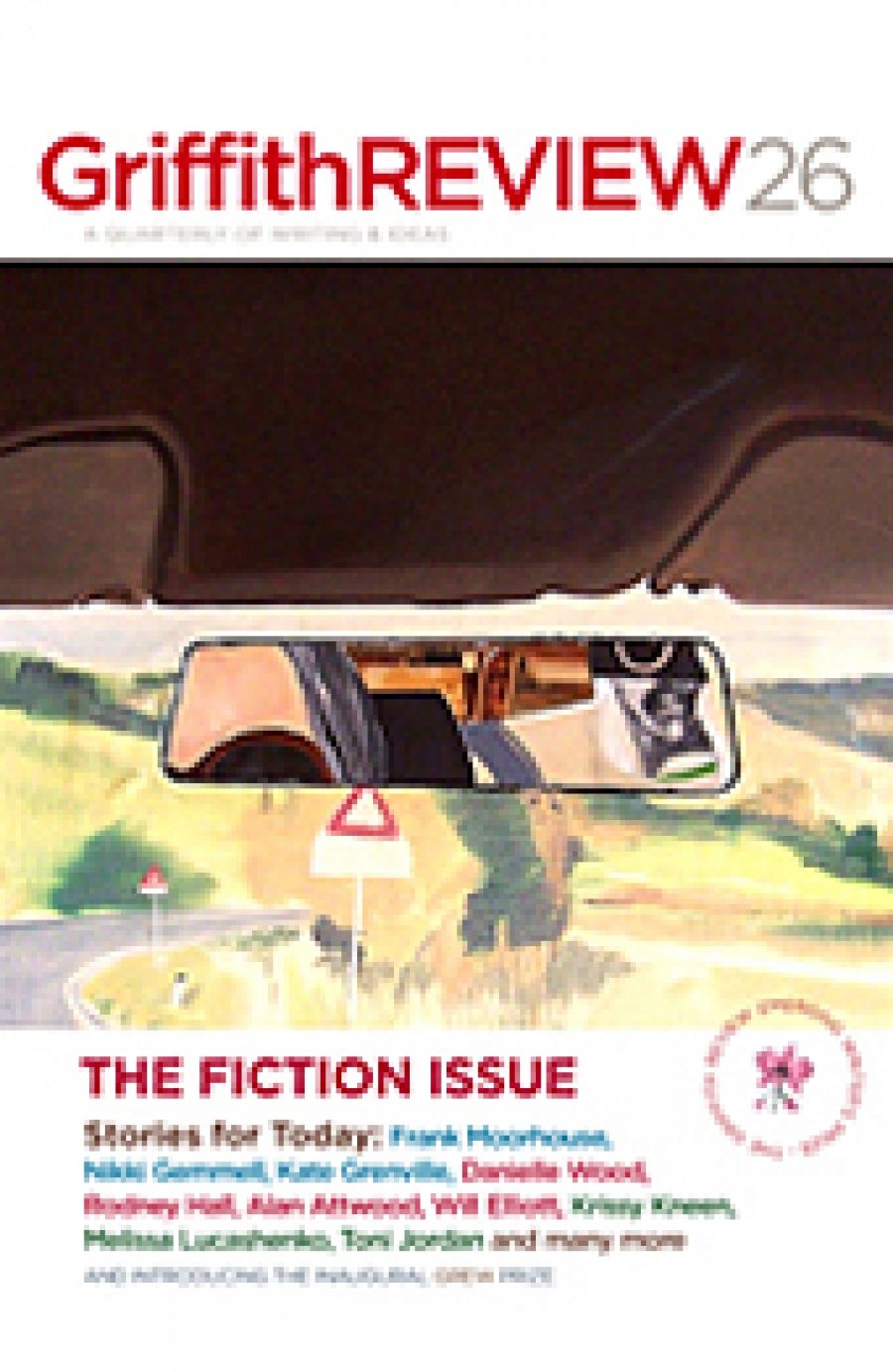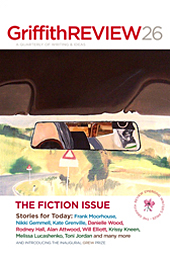
- Free Article: No
- Contents Category: Journal
- Review Article: Yes
- Article Subtitle: Griffith Review 26
- Online Only: No
- Custom Highlight Text:
In her editorial for Griffith Review 26, Julianne Schultz argues that ‘the best Australian writing has always had a cosmopolitan edge, grounded yet engaged with the world …’ This argument is supported by the contributions to this issue, which are penned by a number of well-known and up-and-coming Australian writers.
- Book 1 Title: Griffith Review 26
- Book 1 Subtitle: The Fiction Issue
- Book 1 Biblio: Text Publishing, $24.95 pb, 260 pp
- Book 1 Cover Small (400 x 600):

The subtitle is ‘The Fiction Issue’, and there is a strong emphasis on local fiction. The short stories published in Griffith Review 26 explore topics as diverse as old age, wedding anniversaries and disastrous trysts. There are essays about the cultural importance of writing by authors such as Kate Grenville, Carmel Bird and Kevin Brophy. Nikki Gemmell describes her trip to Lake Macquarie, which she treats as a welcome respite from the ‘endless routines’ of her everyday life in London.
I found Grenville’s essay to be the strongest contribution to Griffith Review 26. Grenville rightly argues that writers need to ‘play a part in our time of change’, and that they can do this by speaking out on pressing global issues such as climate change. Bird makes a similar point when she argues that fiction is a ‘necessary’ means of representing events such as the 2009 Victorian bushfires. Trent Parke’s ‘picture essay’ entitled ‘The Christmas Tree Bucket’ is another highlight. Parke provides a witty and idiosyncratic perspective on the ‘sinister side’ of the festive season.
Not all the pieces hit the mark. Frank Moorhouse’s short story begins with moments of subtle observational humour, but concludes with such melodramatic lines as ‘play[ing] the role of the consoling older maternal woman … was a role which had never entered her erotic experience with any man. Now might be the time to let loose its dark madness.’ Otherwise, Griffith Review 26 will make an absorbing read for the hot months ahead.


Comments powered by CComment